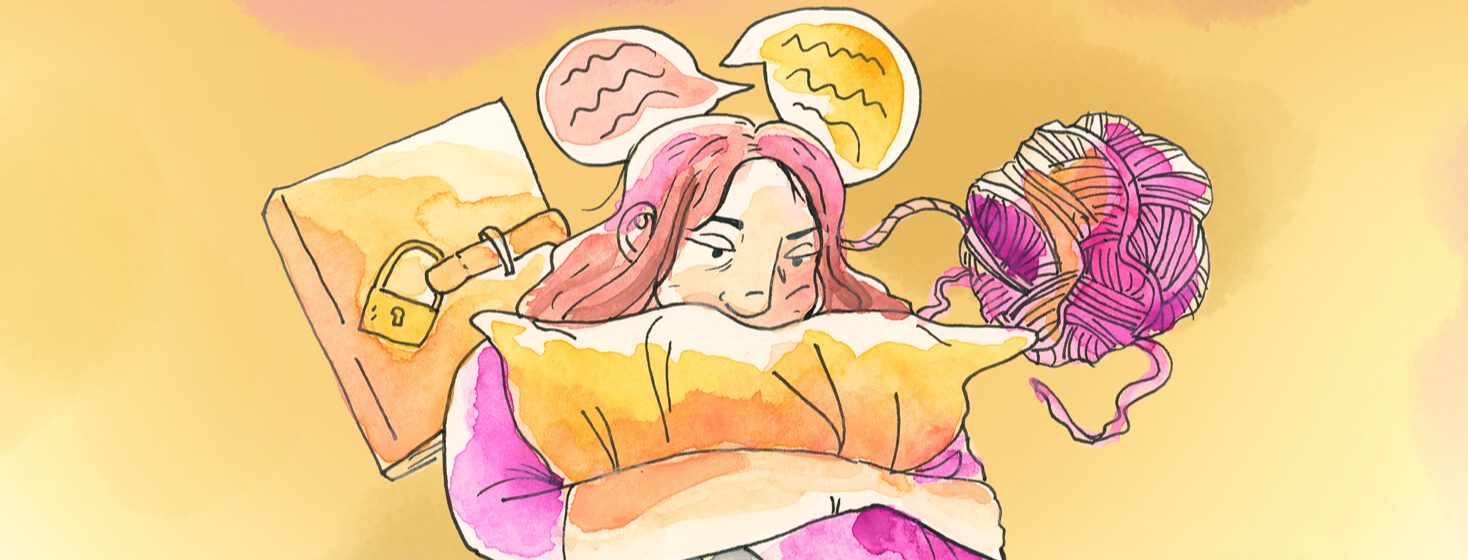Managing Migraines and Mental Health
If you live with migraines, nothing I write here will be of surprise to you. In fact, I’m guessing you might read this article and think “Hey, I could’ve written this myself!” However, it feels important to me to talk about the effect of migraines on my mental health, because there is a clear and prevalent connection, and I don’t think my doctors or my family members understand it in the ways that I need them to.
How does migraine put my life on hold?
Many of the migraines I've suffered over the years have been devastating and even paralyzing. You know the ones. I have to stop whatever I'm doing, find myself a place to lay down in the dark, in the silence, and pray to a higher power I don't even believe in that whatever abortive medication I've taken will do its job, and quickly. During these times, I cannot work, think, drive, cook, parent my child, or do anything deemed necessary and productive.
When will my next attack be? How long will it last?
When I'm not living in this dark migraine haze, I'm worried - wondering when the next one will attack, how long it'll last, what it'll cancel from my calendar, and who I'll need to ask for help during the interim. How is one supposed to NOT worry about something that literally cancels your life immediately, without warning, and lasts as long as it would like to without any sign of when it'll leave or how much damage it'll do in its wake?
What am I missing out on?
During migraine attacks, in the aforementioned silent dark room, I'm often alone. If I'm lucky enough to doze off and get some sleep, the time passes more quickly, but if I'm unable to do so, the hours drag on. I find myself feeling sad and lonely during these periods, wondering what others are doing around me, what I'm missing out on, how long I'll have to miss out on things until the attack passes, etc.
How long does the depression last?
The depression sometimes fades away as I come out of the migraine attack, finding relief from the pain and readjusting to the light and sounds of daily life; but sometimes, it doesn't. Sometimes it stays with me for days afterward, reminding me how hard that experience was, how little others understand what it's like to live with migraines, and even a little bit of a pity party for the fact that migraines are a staple part of my life.
How do I care for my mental health?
I wish this part were easy to write. Here's a three-part list of how to care for your mental health before, during, and after a migraine to ensure you don't struggle with anxiety and depression the way I do. Unfortunately, we know that this list just doesn't exist...yet.
So, here's what I can tell you. There are some things that for me, have lessened the effects of migraines on my mental health, and I thought sharing them might be helpful for you:
Tip #1
I keep a small spiral notebook on my nightstand. In it, I write if I'm feeling sad or anxious in relation to a migraine - one that might be coming up, one I'm experiencing, or one that just passed. I can't really explain it, but it helps me to see on paper that I've struggled with these things before and that I've made it through those struggles to the present day.
Tip #2
I find that validating my experiences with migraines and mental health is pivotal for my being able to survive them. Whether it's my husband, my best friend, or my therapist, explaining what I have navigated makes me feel seen and heard, even though much of the experience has been silent and only in my head.
Tip #3
During periods of high anxiety or depression, be extra kind to yourself. Whether that means reducing your responsibilities, getting some extra sleep, doing something that brings you joy, I find that this helps me stay a bit more grounded while I ride the rollercoaster of emotions.

Join the conversation